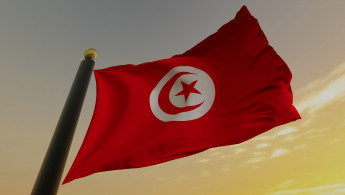EU warns of 'very dangerous' Tunisia crisis, tasks Belgium, Portugal FM's to visit
The EU on Monday tasked the foreign ministers of Belgium and Portugal to visit Tunisia, as concerns mount over the economic and political situation in the country.
"The situation in Tunisia is very very dangerous," foreign policy chief Josep Borrell said after a meeting of EU ministers in Brussels.
"If it collapses economically or socially then we will be in a situation where new flows of migrants will come to Europe. We have to avoid this situation."
Borrell said the two ministers would "assess the situation and to come back with a report that will guide our future steps".
Tunisia is stuck in a grinding economic crisis that has seen inflation hit 10.4 percent and unemployment reach 15.2 percent, according to the latest official figures.
The problems deepened after the World Bank this month effectively suspended new lending to the cash-strapped state after President Kais Saied sparked accusations of racism with incendiary comments against sub-Saharan African migrants.
The North African country is heavily indebted and needs to borrow billions of dollars more to balance this year's budget.
The country has been in talks since 2021 with the World Bank's fellow global lender, the International Monetary Fund, for a $2-billion bailout loan.
Those negotiations, partly dependent on funding from the bank, could now be pushed further down the line.
Beyond the economic situation, the EU has been upset by Saied's increasing authoritarianism and a crackdown on opponents that has seen more than 20 political figures arrested in recent weeks.
"We cannot turn a blind eye to what's happened," Borrell said.
Saied froze parliament and sacked the government in a dramatic July 2021 move against the sole democracy to emerge from the Arab Spring uprisings.
He later pushed through sweeping changes to the country's political system, concentrating near-total power in his office.





 Follow the Middle East's top stories in English at The New Arab on Google News
Follow the Middle East's top stories in English at The New Arab on Google News


